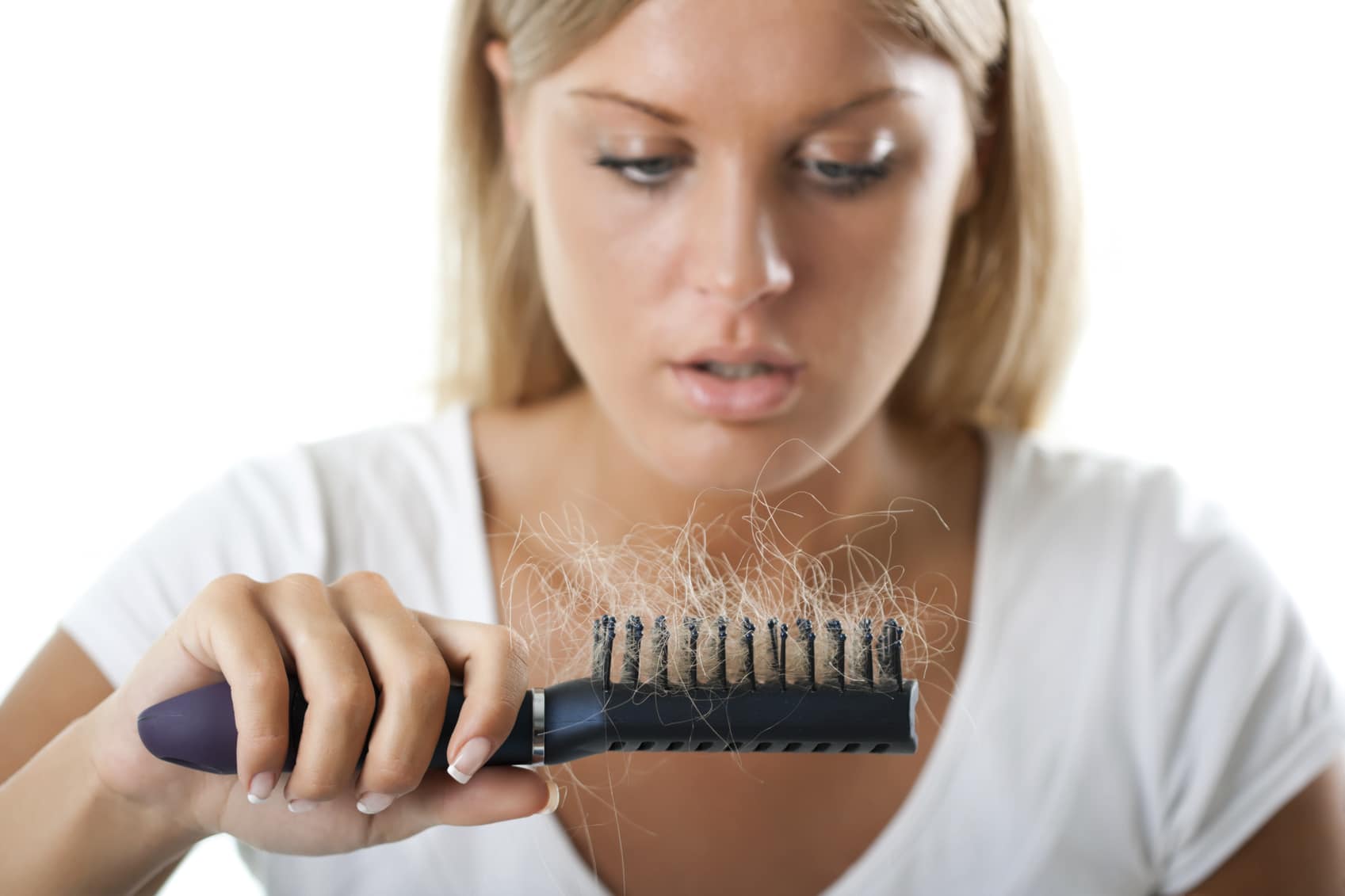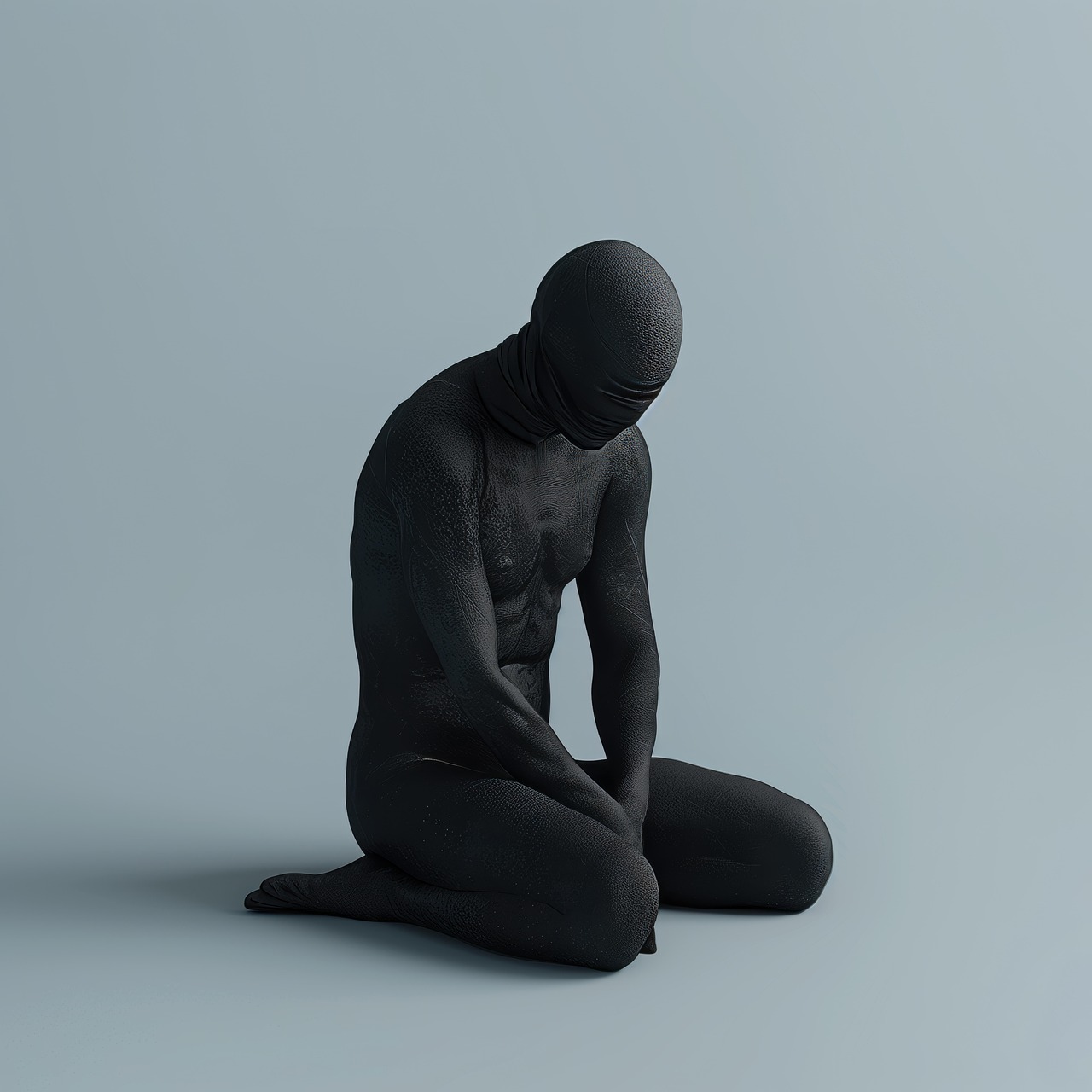
Guess what? I see more female patients voicing concern about their hair loss than I do men. I suspect the big reason for that is most men expect to lose some hair as they age. Women do not. Hair loss in women is a crushing blow to the self-image and psychological well-being and they are not happy when they see clumps of hair in the brush. Women tend to be quite anxious about hair loss it and want something done about it.
When it comes to hair loss in women think 40-40-40. More women experience hair loss than is generally realized. Women make up 40% of hair loss sufferers. According to the Academy of Dermatology 40% of women have visible hair loss by age 40.
Causes of Hair Loss in Women
Hair loss in women differs from that in men. Androgenetic alopecia accounts for 95% of hair loss in men. In women the causes of hair loss are more varied and sometimes there is more than one factor contributing to the hair loss. Also, more cases of hair loss in women are temporary if diagnosed early and treated. Hair loss in women is most often a sign that something else is wrong with the health of a woman. It’s a canary in the mineshaft. Fix the health problem and you fix the hair loss.
All the causes of hair loss that we discussed in men also apply to women. But, there are some unique characteristics of hair loss in women. The causes of hair loss in women include:
- Androgenetic alopecia
- Alopecia areata
- Cictricial alopecis
- Drug induced hair loss
- Telogen effluvium
- Traction alopecia
- Trichotillomania
Androgenetic alopecia
Androgenetic alopecia is the result of excess dihydrotestosterone (DHT) that shrinks hair follicles in susceptible individuals sensitive to DHT (genetically determined). This eventually leads to hair loss. Men with androgenetic alopecia have distinct patterns of hair loss. Women with androgenetic alopecia tend to have diffuse hair loss.
Conditions like polycystic disease can lead to excess DHT production in women. Also some birth control pills have high androgenic activity leading to higher DHT levels. Pregnancy and menopause can even be associated with androgenetic alopecia.
Alopecia areata
Alopecia areata is an autoimmune disease. It can involve the entire body (alopecia universals) or the entire scalp (alopecia totals) or the hair loss can be patchy. It affects men and women equally.
Cicatricial alopecia
Hair follicle are destroyed in cicatricial alopecia and replaced with scar tissue. Cicatricial alopecia is rare but leads to permanent hair loss.
Drug Induced Hair Loss
- Acne medications like containing vitamin A (Accutane).
- Antibiotics and antifungals
- Anticonvulsants
- Antidepressants including frequently prescribed Paxil, Prozac, and Zoloft as well as several others.
- Beta blockers used to treat blood pressure and heart disease.
- Birth control pills
- Blood thinners including frequently prescribed coumadin and heparin.
- Chemotherapy agents
- Cholesterol lowering drug like gemfibrozil and clofibrate.
- Diet drugs like amphetamines.
- Estrogen and progesterone replacement.
- Nonsteroidal anti-inflammatory drugs including naproxen and indomethacin.
- Ulcer medications like Tagmet, Pepcid, and Zantac.
- Testosterone by raising DHT levels.
- Thyroid drugs
Thyroid Disease
Both an overactive and underactive thyroid can cause hair loss.
Hair Loss from Birth Control Pills
Birth control pills deserve special attention as a cause for female hair loss.
Birth control pills are one of the more prescribed class of drugs. In the United States alone 10.6 million women use oral contraceptives. Hair loss among women was quite rare until about 20 years ago. The one thing that has changed since then is the more frequent use of birth control pills and its use by women earlier in life.
The American Hair Loss Association warned in a statement in 2010 that is imperative for all women especially for those with a history of hair loss in their family to be made aware of the potentially devastating effects of birth control pills on normal hair growth.
Birth control pills contain modified forms of estradiol and progesterone. They are not bioiodentical hormones. The modified forms of progesterone are known as progestins.
Birth control pills that have a high androgen index are more likely to cause female hair loss. Hair loss associated with birth control pills can occur while on the pill, but more commonly several weeks and months after stopping the pill.
Androgen Index
Birth control pills ranging from the lowest androgen index (preferred to prevent hair loss) to the highest androgen index are listed in order below. Progestins with high androgen index more or less function like DHT on the hair follicles.
- Desogen (lowest androgen index
- Ortho-Cept
- Ortho-Cyclen
- Ortho Tri-Cyclen
- Micronor
- Nor-Q D
- Ovcon-35
- Brevicon/Modicon
- Ortho Novum 7/7/7
- Ortho Novum 10-11
- Tru-Norinyl
- Norinyl 1/35
- Ortho 1/35
- Demulen 1/35
- Triphasil/Tri-Levien
- Nordette
- Lo/Ovral
- Ovrette
- Loestrin 1/20
- Loestrin 1.5/30 (highest androgen index)
The contraceptives Diane 35 and Diane 50 contain cyproterone acetate which blocks the effects of DHT. They are used in Europe to treated female androgenetic alopecia. They are not available in the United States.
Female Balding
Female hair loss is more common that generally thought. Hair loss also has more adverse psychological effects on women than men. Female balding frequently indicates an underlying medical problem (excluding drug induced hair loss) that needs to be addressed. Most hair loss in women can be successfully treated when caught early.
Women with a family history of hair loss should be careful when choosing birth control pills selecting only among those pills that have a low androgen index.
In an upcoming post we will discuss proven treatments for hair loss in both men and women.




